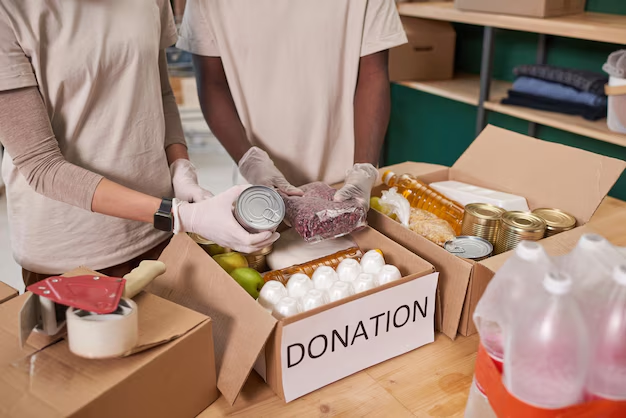Navigating Food Stamps Without Employment: What You Need to Know
Access to food is a fundamental right, yet many individuals face challenges in achieving this basic need, especially those without a steady income. The Supplemental Nutrition Assistance Program (SNAP), more commonly known as food stamps, is designed to help alleviate this burden. If you're currently unemployed or know someone who is, you might be wondering: Can you get food stamps with no job? The answer is yes, but there are specific criteria and considerations to keep in mind. This guide will explore the various aspects of SNAP eligibility for unemployed individuals, providing insight into the process and related topics to help you make informed decisions.
🍛 Understanding SNAP: A Brief Overview
The Role of SNAP: SNAP is a federal program aimed at providing nutritional support to low-income individuals and families. Its goal is to improve food access for Americans who need it the most, ensuring that no one goes hungry due to financial constraints.
Eligibility Basics: Eligibility for SNAP depends on several factors, including income level, household size, and expenses. However, employment is not a strict requirement for receiving benefits, making it accessible to those experiencing unemployment.
📝 Applying for SNAP Without a Job
Income Requirements
One of the most critical factors for SNAP eligibility is income. When assessing your application, SNAP considers:
- Household Income: All income sources of a household are evaluated, including unemployment benefits, child support, and other financial assistance.
- Gross and Net Income Limits: SNAP sets limits on both gross and net income, which vary by state. Even if you're unemployed, your household income must fall within these guidelines to qualify.
Asset Limits
In addition to income, SNAP also considers assets:
- Countable Resources: These include bank accounts, stocks, bonds, and certain vehicles. However, not all assets are countable, and the limits can differ by state.
- Exclusions: Some resources, like retirement accounts and home equity, may not affect eligibility.
Household Composition
Your household consists of the people who live and prepare meals together. The number and characteristics of household members can impact SNAP benefits:
- Children and Dependents: The presence of dependents such as children, elderly family members, or individuals with disabilities can affect eligibility and benefit amounts.
- Shared Living Arrangements: Living with roommates doesn't necessarily mean you must include them in your application, unless you share meals and finances.
🔍 Exploring Related Concepts and Considerations
Work Requirements and Work Waivers
Though employment is not a prerequisite, SNAP does have work-related conditions:
- General Work Requirements: Typically, SNAP recipients between ages 16 and 59 must register for work, accept suitable work, and participate in employment and training if assigned.
- ABAWD Rule: Able-bodied adults without dependents (ABAWDs) face additional work requirements. They must work at least 80 hours per month or participate in a work program to receive benefits for longer than three months in a three-year period.
- Waivers: Areas with high unemployment rates may offer waivers for these work requirements. Check with your local SNAP office to see if you qualify.
Other Assistance Programs
While you pursue SNAP benefits, consider exploring other programs that can provide additional support:
- Temporary Assistance for Needy Families (TANF): Offers cash assistance to eligible families with dependent children.
- Women, Infants, and Children (WIC): Provides nutritional support to pregnant women, new mothers, and young children.
- Local Food Banks: Many communities have food banks that can offer immediate aid.
Overcoming Common Challenges
Navigating the application process can be daunting. Here are some tips to help you succeed:
- Gather Necessary Documentation: Prepare your identification, proof of address, income records, and expense receipts.
- Understand the Interview Process: Many states require an interview as part of the application. Be ready to discuss your financial situation and household composition.
- Stay Informed: Policies and eligibility rules can change, so stay updated through official SNAP resources or local agencies.
💡 Practical Tips and Key Takeaways
Before engaging with SNAP, keep these tips in mind to maximize your experience:
- Be Persistent: The application process can take time, so don't be discouraged by initial hurdles.
- Seek Guidance: If you're unsure about any part of the application, seek help from local organizations or SNAP representatives.
- Track Your Application: Follow up on your application status to ensure you're moving through the process efficiently.
Here's a quick visual summary to guide you:
| 💡 Tips for Navigating SNAP Without a Job |
|---|
| ✅ Understand income and asset limits |
| ✅ Prepare relevant documentation |
| ✅ Explore work waivers if applicable |
| ✅ Consider additional aid programs |
| ✅ Stay informed on policy changes |
🔗 Conclusion: Empowering Your Path Forward
Accessing food stamps without a job is not only possible but also structured to support those in need during challenging times. By understanding the SNAP program's nuances and requirements, you can effectively navigate the system to secure the assistance you need. Remember, you're not alone in this journey, and numerous resources are available to help you every step of the way.
Embrace the support networks around you, seek knowledge actively, and approach the process with confidence. In doing so, you'll be better equipped to ensure that food security remains within reach, regardless of employment status.

Related Topics
- Am I Eligible For Food Stamps
- Are Food Stamps Being Cut
- Are Food Stamps Federal Or State
- Are Food Stamps Frozen
- Are Food Stamps Funded By Taxpayers
- Are Food Stamps Going Away
- Are Food Stamps Income Limits
- Are Food Stamps Paused
- Are Illegal Aliens Eligible For Food Stamps
- Are Illegal Immigrants Eligible For Food Stamps
